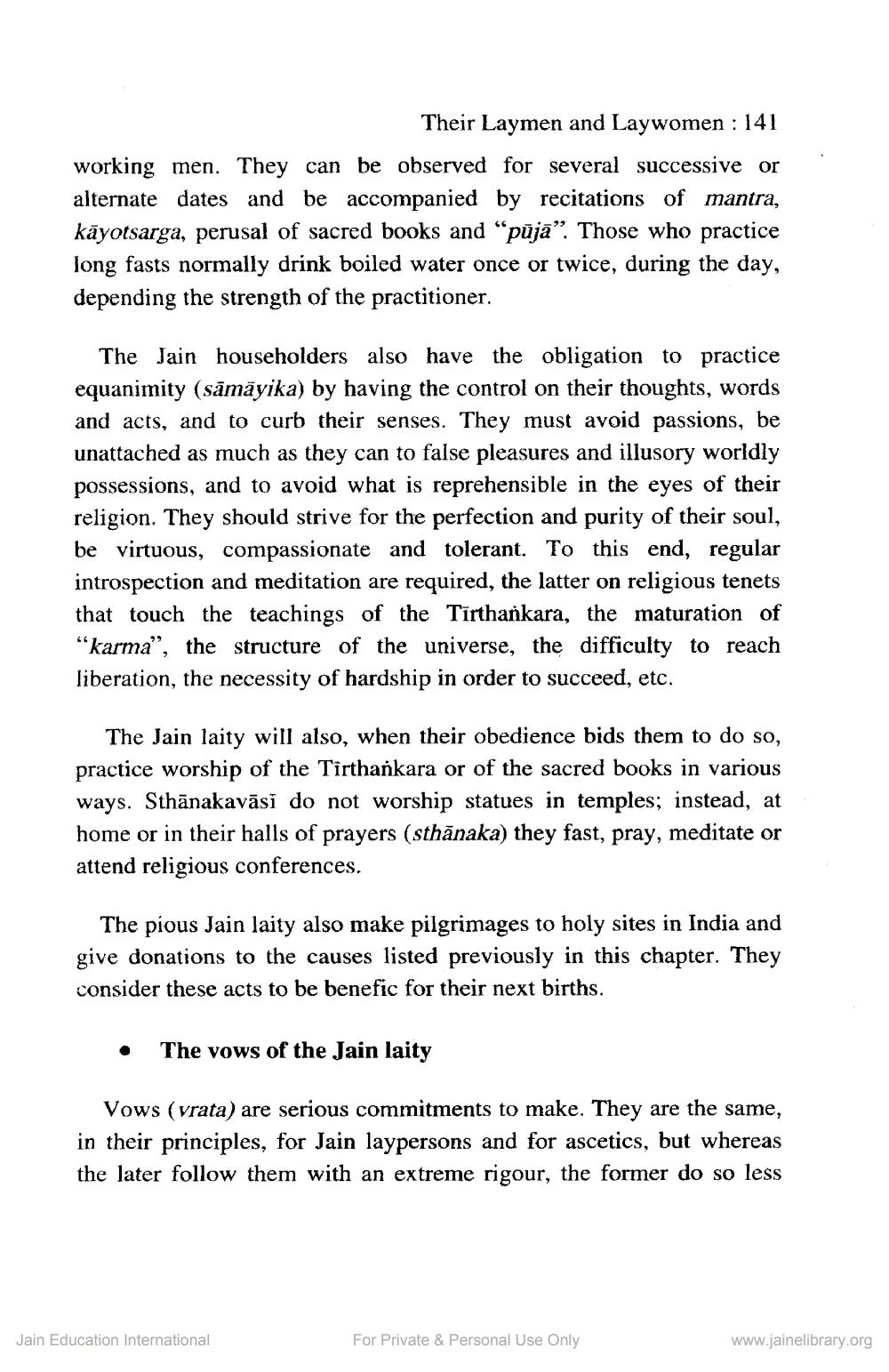________________
Their Laymen and Laywomen : 141 working men. They can be observed for several successive or alternate dates and be accompanied by recitations of mantra, kāyotsarga, perusal of sacred books and “pūjā”. Those who practice long fasts normally drink boiled water once or twice, during the day, depending the strength of the practitioner.
The Jain householders also have the obligation to practice equanimity (sāmāyika) by having the control on their thoughts, words and acts, and to curb their senses. They must avoid passions, be unattached as much as they can to false pleasures and illusory worldly possessions, and to avoid what is reprehensible in the eyes of their religion. They should strive for the perfection and purity of their soul, be virtuous, compassionate and tolerant. To this end, regular introspection and meditation are required, the latter on religious tenets that touch the teachings of the Tīrthankara, the maturation of "karma”, the structure of the universe, the difficulty to reach liberation, the necessity of hardship in order to succeed, etc.
The Jain laity will also, when their obedience bids them to do so, practice worship of the Tirthankara or of the sacred books in various ways. Sthānakavāsī do not worship statues in temples; instead, at home or in their halls of prayers (sthānaka) they fast, pray, meditate or attend religious conferences.
The pious Jain laity also make pilgrimages to holy sites in India and give donations to the causes listed previously in this chapter. They consider these acts to be benefic for their next births.
•
The vows of the Jain laity
Vows (vrata) are serious commitments to make. They are the same, in their principles, for Jain laypersons and for ascetics, but whereas the later follow them with an extreme rigour, the former do so less
Jain Education International
For Private & Personal Use Only
www.jainelibrary.org




